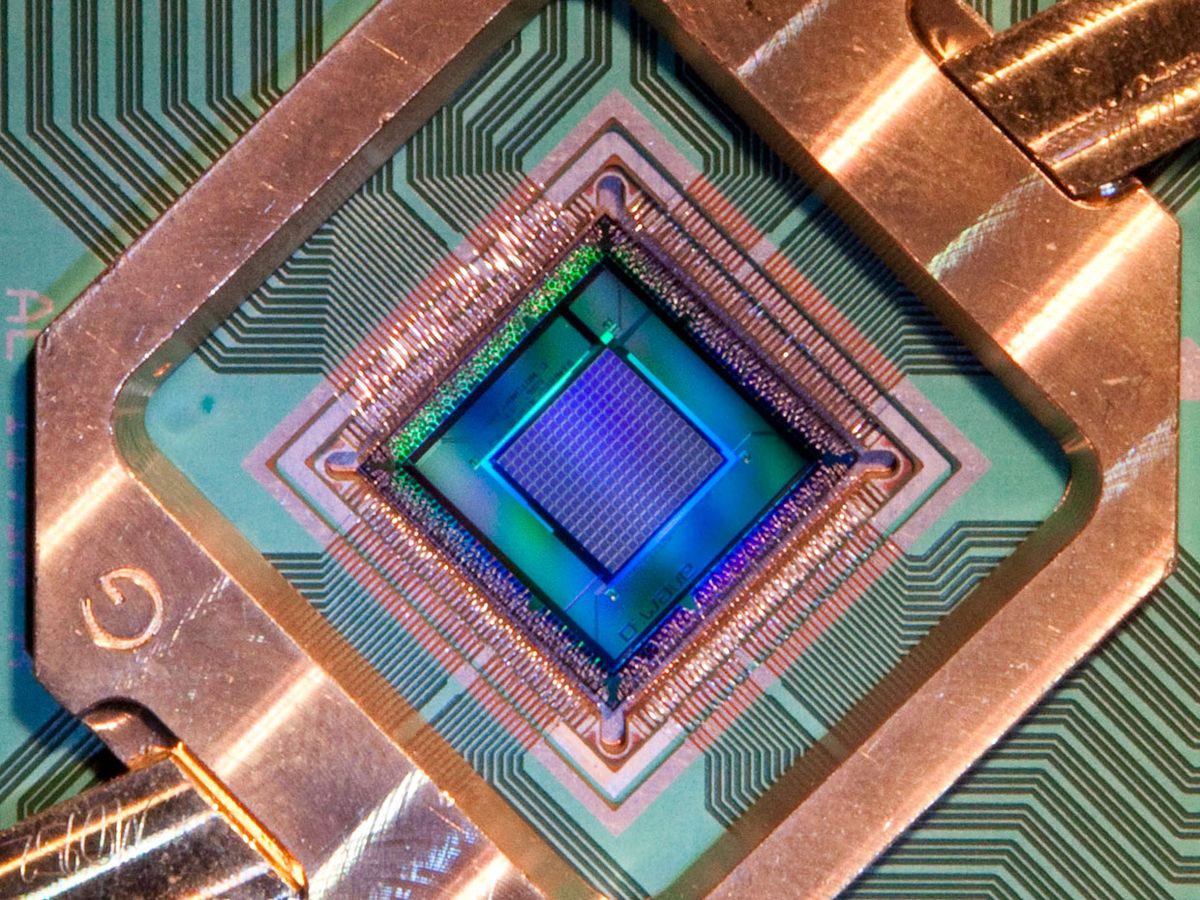Quantum computing could someday supercharge artificial intelligence, accelerate drug discovery, and even reduce traffic jams. But existing quantum computers, which have only a modest, if any, advantage over their classical brethren, are expensive, finicky beasts. Even if you could afford the US $15 million to buy a D-Wave 2000Q quantum annealer [PDF], for example, you would need experts to maintain the ultracold operating conditions its processor requires.
Until today, that is, when Canadian startup D-Wave Systems Inc. launched a real-time online quantum computing environment called Leap. Leap is the latest addition to the quantum cloud—services that virtualize quantum computing for almost anyone with a computer and a broadband connection to use.
Leap allows anyone to sign up, giving them one minute of time on a cloud-connected 2000Q each month. That might not sound like much, but a key advantage of quantum computing is to be able to solve in milliseconds problems like factoring large numbers, optimizing routes, or calculating molecular structures that could take traditional computers days or weeks. Quantum computers encode information in qubits, enabling massively parallel computation relying on purely quantum effects.

“We want to enable hundreds of thousands or millions of developers to gain access to quantum computing technology, to understand it, and to develop applications,” says Murray Thom, D-Wave’s director of software and cloud services.
As well as granting access to a 2000Q computer housed at D-Wave’s headquarters in the Vancouver suburbs, Leap provides documentation, videos, training materials, and a community for the majority of developers who have never worked with a quantum computing device.
“There are a few people in materials simulation, finance, and machine learning who will understand quantum programming constructs in two or three sentences,” says Thom. “But the focus of our system is on folks who are new to quantum.”
D-Wave is offering an open-source software development kit (SDK) called Ocean that can be used to build applications and solve problems on the 2000Q, and has set up a forum for developers to swap hints and link to any code they create. “There is the expectation that any software you develop using the open-source Ocean and the free access is contributed back to the community,” says Thom. “It’s all about bringing a large developer community together and letting them shape a support network among themselves.”

D-Wave estimates that each user’s free minute of quantum computing time should be enough to run between 400 and 4,000 jobs each month. If developers want more, the company will charge commercial users $2,000 for one hour of access each month. That looks like a bargain compared to the $100,000 NASA is charging Ford for access to its 2000Q at its Ames Research Center in Silicon Valley, for example.
If the hundreds of thousands of researchers D-Wave is hoping for actually do show up, there could be some congestion, admits Thom. The Leap dashboard shows an estimated waiting time for each job, and D-Wave uses Amazon’s cloud platform to run the Leap website, and to move data and results between users and the 2000Q.
Florian Neukart, a principal scientist at Volkswagen who has worked with D-Wave in the past, says, “[Leap] will certainly help to democratize quantum computing. Particularly, as D-Wave will provide free access to their biggest QPU [quantum processor unit], which can be used to work on real-world problems instead of only being used to run small, artificially created demos.”
That could be a subtle dig at rival quantum cloud services, from IBM and Rigetti. Both are developing more general-purpose quantum computers, albeit with many fewer qubits compared to D-Wave’s flagship annealer.
IBM’s Q Experience is a novice-friendly gateway that offers user guides, an open-source SDK, and interactive quantum demonstrations, but it restricts free access to preapproved researchers and its older 5- and 16-qubit devices.
Rigetti is a well-funded Bay Area startup offering Quantum Cloud Services (QCS), a cloud computing platform and SDK that tightly integrates its 16-qubit quantum processor with classical computing infrastructure. Rigetti is promising that the first organization to demonstrate a “quantum advantage”—where a quantum computer is proven to be more effective than a classical computer—will earn a $1 million prize. That may have to wait for the arrival of its 128-qubit processor, promised for next year.
The real prize in quantum computing, of course, awaits the company that becomes the default software and hardware provider for the rapidly expanding quantum cloud. The prospect of becoming the equivalent of Windows or Intel for computing’s next great leap would be enough to persuade anyone to give away access to (literally) their coolest technology today.
Mark Harris is an investigative science and technology reporter based in Seattle, with a particular interest in robotics, transportation, green technologies, and medical devices. He’s on Twitter at @meharris and email at mark(at)meharris(dot)com. Email or DM for Signal number for sensitive/encrypted messaging.


